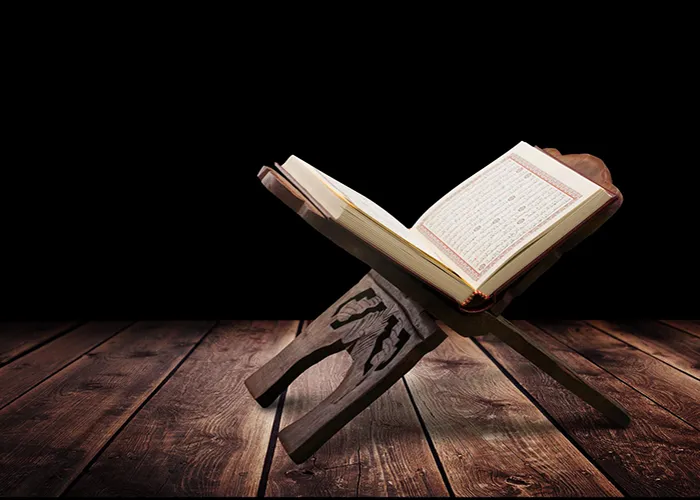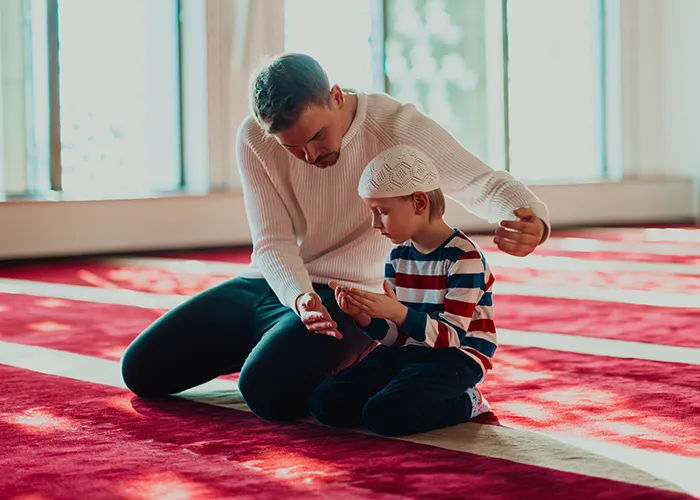Ayah Of The Week – Volume01 Issue16
11th October is marked as the International Day of the Girl, highlighting the needs and challenges girls face, promoting girls’ empowerment and the fulfilment of their human rights. The Holy Quran, in several instances, emphasises the importance and significant contributions of girls and women throughout human history. For example, in Surah Ash-Shura, Verse 49 (42:49), it states:
لِلَّهِ مُلْكُ السَّمَوَاتِ وَالْأَرْضِ يَخْلُقُ مَا يَشَآءُ يَهَبُ لِمَن يَشَآءُ إِنَاثاً وَيَهَبُ لِمَن يَشَآءُ الذُّكُورَ
“To Allah belongs the dominion of the heavens and the earth. He creates whatever He wills. He grants to whomever He wills female children, and He grants to whomever He wills male children.”
Educational Messages of this Verse for Teenagers and Young People:
Value Comes from Faith and Taqwa Not Gender
This verse teaches young people that both male or female are valuable in the eyes of Allah SWT, and their worth is determined by their faith and piety. The fact that daughters are mentioned first in this verse highlights the respect and value Islam places on girls and women. Muslim girls, in particular, should understand their importance and take pride in their Muslim identity, especially in a world where women may be distanced from their innate values.
Recognise and Stay Rooted in Your Value
Girls should understand that in Islam, their value is based on their faith and character, not societal expectations. In a Western society where many women may be disconnected from their intrinsic values, Muslim girls can take pride in adhering to their ethical and moral principles.
Educational Messages of this Verse for Parents:
Prioritise and Cherish Your Daughters
This verse reminds parents to prioritise their daughters and shower them with love and attention. Parents are encouraged to treat their daughters with special affection, as nurturing their daughters with love can prevent them from seeking false affection elsewhere. Imam al-Ridha (A.S.) said, “Allah is kinder to daughters than to sons. Whoever brings joy to his daughter, Allah will make him joyful on the Day of Judgment.”
Ensure daughters are given emotional support, love, and care, so they do not feel the need to seek attention from harmful influences.
Educational Messages of this Verse for Imams, Mosque Leaders, and Cultural Centre Directors:
Promote Islam’s Stance Against Gender Discrimination
Imams and leaders must use this verse to highlight that Islam stands firmly against gender discrimination. Islam honours women and girls, considering the birth of daughters a blessing. As reflected in this verse, daughters are mentioned before sons, a clear sign of the respect accorded to them. The Prophet Muhammad (PBUH) said, “There is no house with daughters in it except that Allah sends twelve blessings and mercy to that house every day.”
Teach the Honour Islam Gives to Women
Use sermons, discussions, and classes to promote the respect and dignity Islam offers to women and girls, highlighting their importance in the family and society. Share Prophetic traditions and verses that highlight the virtues of having daughters and how they bring blessings and mercy to their families.
Educational Messages of this Verse for Islamic Communities:
Value Women and Girls Beyond the Materialistic Lens
Islamic communities are called upon to value women and girls for their intrinsic worth and not to reduce their role to materialistic or objectified terms, as is often seen in modern societies. This verse is a reminder to honour the dignity of women, emphasising their role in spiritual and familial growth.
Reject Objectification
Avoid treating women and girls as objects of societal pressures or consumer culture, as often seen in Western contexts. Value their spiritual, moral, and intellectual contributions to the community. Encourage communities to uphold the Islamic tradition of respecting women, ensuring they feel valued and empowered in all areas of life.
editor's pick
news via inbox
Subscribe to the newsletter.




